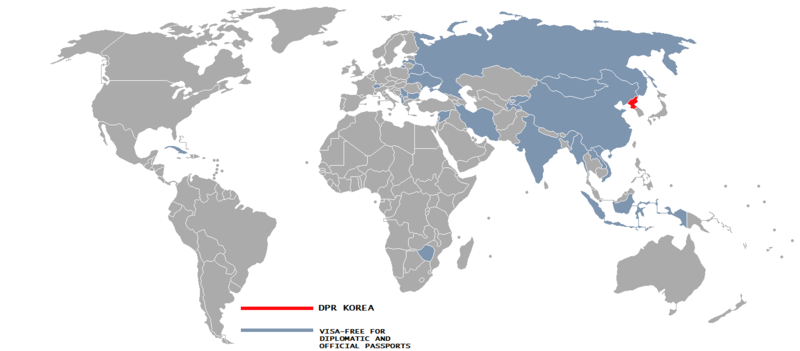Kim Jong-un admits North Korea is facing a 'tense' food shortage.
South Korea — North Korea is preparing for a potential food shortage in the coming months.
North Korean leader Kim Jong-un has issued a rare warning about a "tight" food situation caused by widespread flooding, the coronavirus outbreak, and international sanctions, according to the state news media on Wednesday.
Mr. Kim summoned the Central Committee of his ruling Workers' Party on Tuesday to examine the status of affairs in his isolated country, and stressed that overcoming the food shortfall was “a top priority,” the official Korean Central News Agency reports.
Mr. Kim was cited at the meeting as adding, "In particular, the people's food situation is now becoming tense as the agriculture sector failed to fulfil its grain production" due to flood damage. “It is extremely important that the entire party and state focus on agriculture.”
Although it is no secret that North Korea's economy is in crisis, Mr. Kim's admission of a national food shortfall as publicly and clearly as he did this week is unprecedented.
“Households could experience a harsh lean period between August and October,” the UN Food and Agriculture Organization warned in its most recent assessment of the country's food insecurity. If the country's food shortage is not covered by imports or foreign aid, “households could experience a harsh lean period between August and October.”
Mr. Kim's admonition came two months after he urged his party to embark on a "arduous march" to alleviate his people's economic woes. Some foreign commentators were taken aback by the April remarks because the word "arduous march" is normally used by the North to describe a crisis that must be overcome, such as the famine in the 1990s that killed millions of people.
So far, no indications have emerged from North Korea that the country is in danger of another devastating famine, but South Korean reporters monitoring market prices in North Korea have reported that rice prices have risen sharply in recent weeks.
Many essential goods, including medicine, are becoming scarce as North Korea closes its border with China, its only major trading partner, according to Jiro Ishimaru, chief editor of Asia Press International, a Japanese website that monitors North Korea with the help of clandestine correspondents inside the country.
Mr. Ishimaru stated that some families had started selling furniture to raise money for food. In some sections of the country, the number of homeless youngsters foraging for food is also on the rise, though given North Korea's isolation, it's difficult to accurately quantify the situation, he said.
Mr. Kim's admission of North Korea's food shortage was yet another sign that his economic policies were failing.
When he came to power a decade ago, one of his first promises was that his long-suffering people would "no longer have to tighten their belts." However, those economic plans were thwarted when the country's growing weapons arsenal resulted in punitive international sanctions. When Mr. Kim's diplomacy with former President Donald J. Trump collapsed in 2019, his efforts to lift the sanctions came to naught.
Last year when the epidemic and floods devastated the country, Mr. Kim has ordered his country to reject any international aid, fearing that it may lead to an outbreak of Covid-19. (North Korea claims there are no cases of Covid-19, but given the country's inadequate public health system, international health professionals are suspicious.)
During a military parade commemorating his party's anniversary last October, Mr. Kim appeared to choke back tears as he apologised for failing to better the lives of his people. He admitted his economic shortcomings once again in January, outlining a new five-year plan and promised to strengthen the country's nuclear and missile capabilities.
He has since promised to lead his country through the sanctions by establishing a "self-sufficient economy" that produces more goods at home and relies less on trade with the rest of the world. North Korea claimed on Wednesday that its industrial output had increased by 25% this year.
North Korea's grain production fell from 4.64 million tonnes in 2019 to 4.4 million last year, the Korea Development Institute of the South said in a report published this month. This results in a 1.35 million tonne grain shortfall this year. North Korea has traditionally had annual grain shortages, despite attempts to bridge the gap through trade and outside help, particularly from China.
“The North's food crisis this year is on a magnitude it can't handle on its own,” said Kwon Tae-jin, author of the Korea Development Institute analysis. Mr. Kwon believes North Korea should lift its market restrictions and request “large-scale food aid” from Beijing to assist alleviate the food deficit.
On Wednesday, the North said the party gathering will include a debate of how to respond to the Biden administration's recent North Korean policy remarks, saying the agenda would cover "analysing the current world circumstances and our Party's appropriate path."
At a summit in Washington last month, President Biden and his South Korean counterpart, Moon Jae-in, agreed to pursue “diplomacy and dialogue” with the North and to build on the 2018 Singapore agreement, which Mr. Trump signed with Mr. Kim. Washington also announced the appointment of a new special envoy for North Korea, saying it will take a "measured" and "realistic" approach to the country.
The overtures have yet to receive a response from Mr. Kim's regime.

